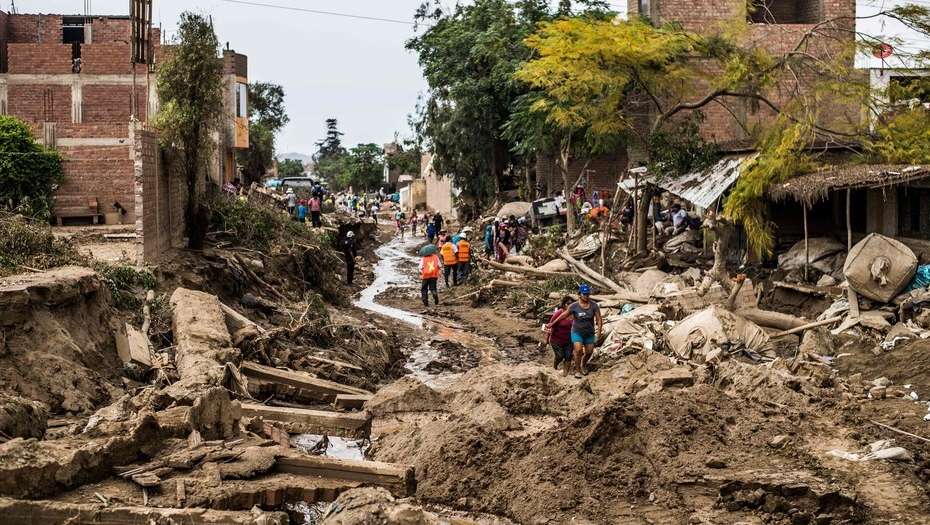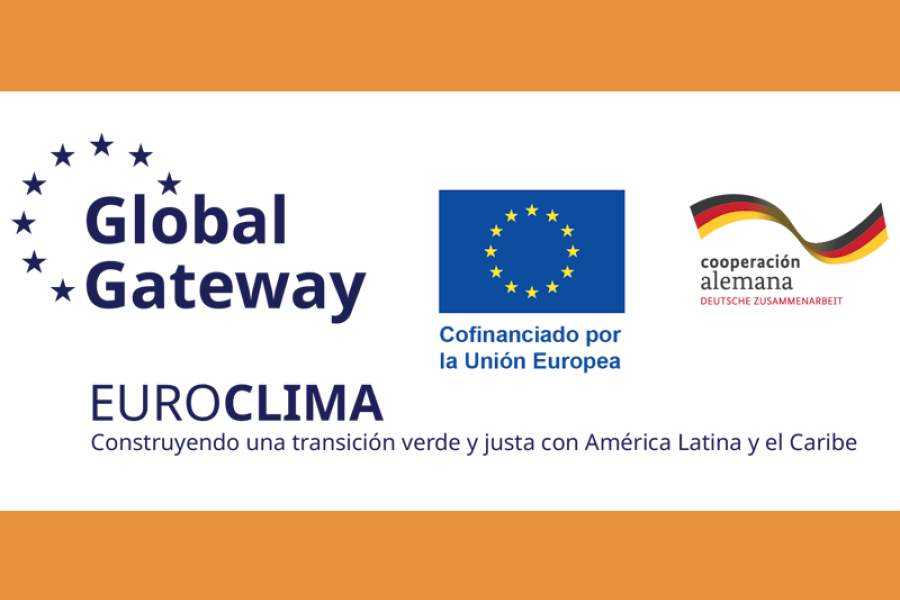Addressing Disaster Risk at Local Level is Essential to Face Climate Change in Latin America
Work area(s)
During a workshop organized by ECLAC in the framework of the EUROCLIMA + programme, experts from various institutions presented their work about disaster risk management and the analysis of climate change vulnerability in municipalities of Colombia.

Promoting the incorporation of climate change and disasters in Latin American public policies was one of the main objectives of the regional workshop "Colombia's Experience in the Construction of the Municipal Disaster Risk Index Adjusted by Capacities and the Analysis of Vulnerability and Risk Due to Climate Change", held on December 18 and 19 at the headquarters of the Economic Commission for Latin America and the Caribbean (ECLAC) in Santiago, Chile.
Joseluis Samaniego, Director of the Sustainable Development and Human Settlements Division of ECLAC, said that "in Latin America and the Caribbean we have an economic vulnerability that leads us to undermine between 1% and 5% of the Gross Domestic Product in case of not acting in the face of climate change, and we also have the evidence that investing in adaptation is always cheaper than doing it in mitigating climate change related impacts."
Susana Agüero, Official of International Cooperation and Development of the Delegation of the European Union in Chile, stated that "in the face of increasing extreme weather events, the European Union gives immediate support to citizens, for example, from the programme of Protection Civil and European Humanitarian Aid Operations, but, at the same time, encourages medium and long-term adaptation actions that reduce risk of disasters and enhance climate resilience."
Experts from the National Unit for Disaster Risk Management and the Planning Department of Colombia presented the process of development and implementation of the Municipal Disaster Risk Index adjusted by Capacities, which measures the risk of hydrometeorological extremes related to increasing precipitation and the territorial capacities to manage it.
"This index helps to prioritize public policies on disaster risk management, also at a national level," explained Lina Ibatá from the National Planning Department.
Javier Mendoza from the Institute of Hydrology, Meteorology and Environmental Studies (IDEAM) delved into the design and application of the Vulnerability and Risk Analysis for Climate Change.
"All the municipalities in Colombia present some type of risk, with Bogotá being one of the cities that leads the ranking of vulnerability to climate change," he said.
The workshop also presented the experiences of the National Emergency Office (ONEMI) of the Ministry of the Interior and Public Security of Chile in the definition of the underlying risk factors at the municipal level, through a participatory process, and of the Ministry of Housing, Territorial Planning and Environment of Uruguay in the process of construction of an index of socio-environmental vulnerability to floods.
Finally, speakers and attendees worked in groups on key issues that should be considered when designing and implementing risk indexes, such as institutional and coordination aspects, regulations and policies, availability of information, and technological capabilities.
About EUROCLIMA+
EUROCLIMA+ is a programme funded by the European Union to promote environmentally sustainable and climate-resilient development in 18 Latin American countries, particularly for the benefit of the most vulnerable populations. The Programme is implemented through the synergistic work of seven agencies: Spanish Agency for International Development Cooperation (AECID), French Development Agency (AFD), Economic Commission for Latin America and the Caribbean (ECLAC), Expertise France (EF), International and Ibero-American Foundation for Administration and Public Policies (FIIAPP), German Society for International Cooperation (GIZ) and UN Environment.
Related content

Regional Workshop: Public Policies for Disaster Risk Management
The workshop seeks to learn more about Colombia's experience in the design, construction and implementation of municipal and departmental public policies related to climate change and to disaster…
